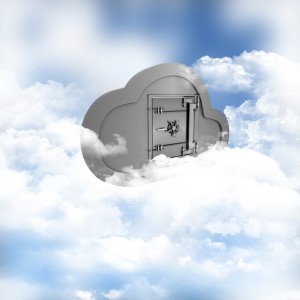 Cloud file storage has become hugely popular in recent years, providing a cost-effective way for SMEs to enable remote access to data without reducing network security at the office. Dozens of Cloud file storage solutions have become available, but all are not equally secure – how can you select the best?
Cloud file storage has become hugely popular in recent years, providing a cost-effective way for SMEs to enable remote access to data without reducing network security at the office. Dozens of Cloud file storage solutions have become available, but all are not equally secure – how can you select the best?
When a user name and password is not enough
Most Cloud file storage systems are tied to a specific user name. Consumer-level products often only allow a single logon to access the file storage; if businesses use these offerings, they need to share the logon, immediately increasing the risk of a security breach, or unauthorised access to data.
Business-level Cloud file-storage offerings, on the other hand, allow for the creation of multiple accounts, so that each authorised employee has their own logon. This approach reduces the risk of passwords being leaked, and helps create an audit trail of where files have been added, deleted or amended and by whom.
However user names and passwords are not all you need to truly secure files. The fact that they are stored in the Cloud is still not enough to properly protect your corporate data.
SSL connectivity helps – a bit
In the same way that consumers are advised to only use ecommerce sites that implement Secure Socket Layer technology to protect data in transit, business owners should only choose Cloud file storage providers who use the same technology.
SSL encrypts data as it passed between computers and the Cloud file service, so that it cannot be intercepted in transit. In the event that a hacker does manage to “grab” data that is being accessed, they will be unable to translate the encrypted contents into anything meaningful.
SSL goes a long way towards addressing security concerns, but still the contents of files are not encrypted when saved, either at your office, or in the Cloud.
The importance of file encryption
A truly secure Cloud storage solution also applies encryption to files as they are saved. In this way the contents are completely unreadable by anyone except your authorised users; if a hacker, or even the Cloud service provider, try to access an encrypted file, all they will find is an unreadable mess, keeping your intellectual property safe from prying eyes.
Unsurprisingly, none of the ‘free’ consumer-focused file storage offer file encryption as standard – nor do many of the business-grade services either. Although it is quite unlikely hackers will successfully breach the security systems of a reputable Cloud file storage provider, there is always a risk of breach, which could seriously damage your business. So having file encryption enabled adds a vital layer of additional security.
Despite provider claims, not all Cloud file storage services are the same. And within their differences, importantly some services are more secure than others. You should ensure you invest in a Cloud system which can give you all these security features, along with much more functionality.
Leave a Reply